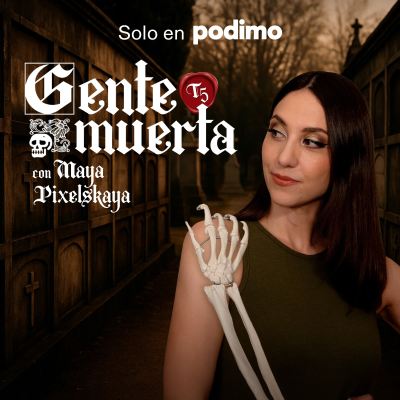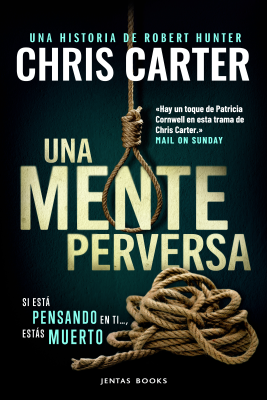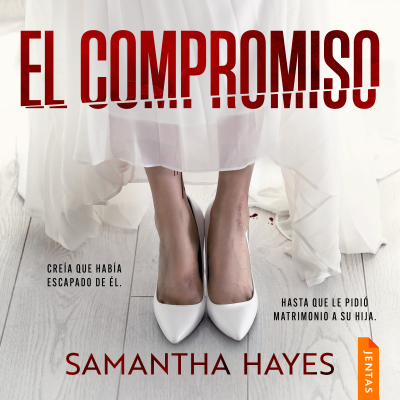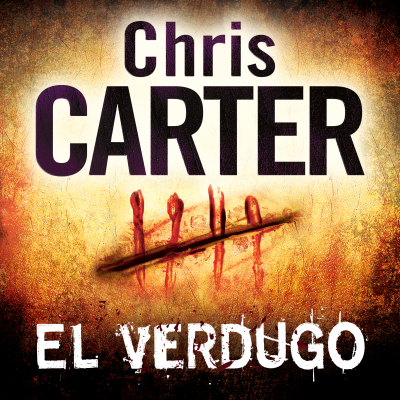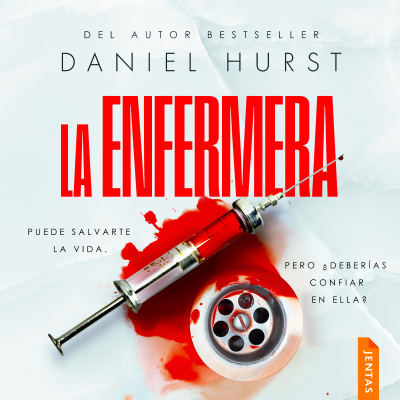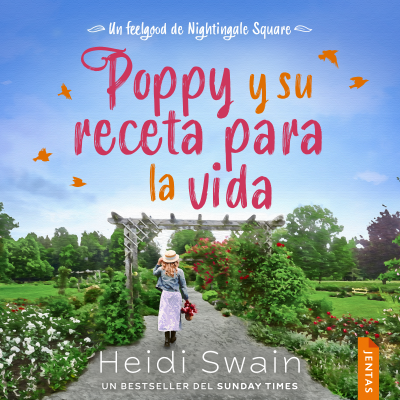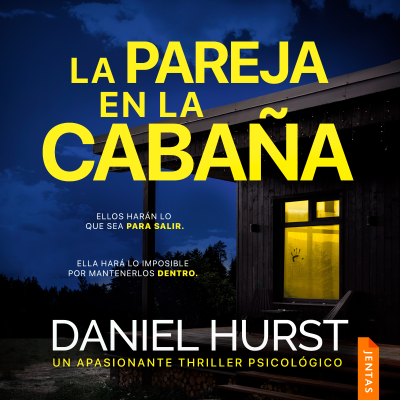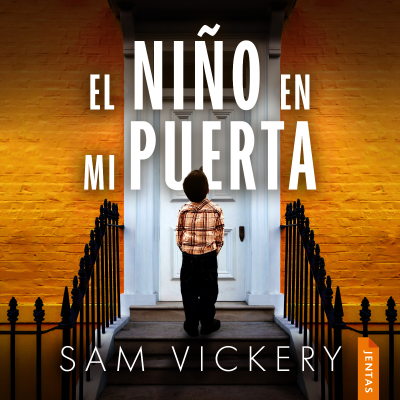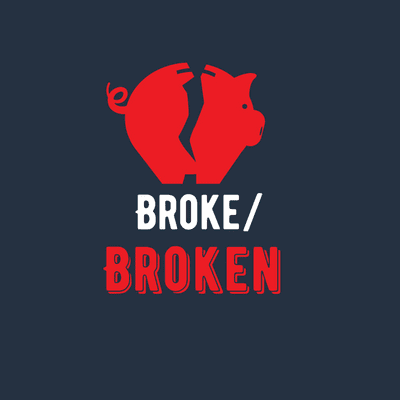
Broke/Broken
null-null
Actualidad y política
Disfruta 30 días gratis
4,99 € / mes después de la prueba.Cancela cuando quieras.
- 20 horas de audiolibros / mes
- Podcasts solo en Podimo
- Podcast gratuitos
Acerca de Broke/Broken
Broke/Broken is a newsletter and podcast exploring the broken systems that makes our society uneven and unequal. Follow us on twitter @brokebrokennews and on substack at brokebroken.substack.com. brokebroken.substack.com
Todos los episodios
2 episodiosSystem Accountability > Individual Accountability
Photo byClay Banks [https://unsplash.com/@claybanks?utm_source=unsplash&utm_medium=referral&utm_content=creditCopyText]onUnsplash [https://unsplash.com/s/photos/police-brutality?utm_source=unsplash&utm_medium=referral&utm_content=creditCopyText] Broke/Broken Welcome to Broke Broken, a newsletter and podcast about our broken systems, the disparities they cause, and how we might address these issues. Before we get into the interview today, we wanted to just take a step back and talk a little bit more about why we're talking, why we're starting this newsletter and podcast. And I'm using the word "we" because there's two of us behind Broke/Broken. But you won't be hearing our names because we want things to be really confusing. Is that right? Yeah, we wanted to create a podcast and newsletter that is as ambiguous and confusing and alienating to people as the systems in which we currently live. In all seriousness, we want to remain anonymous because, you know, we have full-time jobs and we don't want to jeopardize those jobs, just like many people out there who are afraid to sort of take risks or sort of cheating the system by hopefully remaining anonymous, not trying that hard. But, you know, we'll see. We'll see what happens. Yeah, we're broke. And we're living in a broken society and we don't have time to look for new jobs once they fire us for being dissidents. For saying that. For saying that out loud. If you haven't yet, you can go over to brokebroken.substack.com [https://brokebroken.substack.com] to see the first two sort of releases that we did. We had an interview with author and fellow at New America, Lee Drutman. We talked about the two-party system [https://brokebroken.substack.com/p/how-the-two-party-system-is-breaking?r=cipk&utm_campaign=post&utm_medium=web&utm_source=copy] and also we wrote a piece-- my colleague here wrote a piece about how our inequality is killing us [https://brokebroken.substack.com/p/our-inequality-is-killing-us?r=cipk&utm_campaign=post&utm_medium=web&utm_source=copy]. So awesome. Very bright stuff so far, really uplifting stuff. If you need like something to take the edge off your day. You just pop on over to BrokeBroken.substack.com and that's where you find things to cheer you up. That's the remedy right there. So, a little bit about this interview that you're about to hear is, first of all, you know, the one of the biggest things, one of the biggest trials that our nation has seen in some time. The trial of Derek Chauvin recently happened (note: Derek Chauvin’s guilty verdict was announced less than 24 hours from the time of this recording) and we wanted to talk about obviously individual accountability, but more so— and something that we're really interested here is systemic accountability. So, you know, obviously, Derek Chauvin was found guilty of all three charges that he was charged for. But, you know? What happens next in terms of systemic accountability? So to help us, you know, really dive into this conversation, we talked to Professor of Sociology at the University of Maryland and Fellow at the Brookings Institution, Dr. Rashawn Ray [https://twitter.com/SociologistRay?s=20]. So I'm really excited to share this interview with you all. And I wasn't able to sit on the interview this time, but my colleague did a great job interviewing him, and I hope you like it. Broke/Broken Well, I'm actually really excited for this conversation because I think we can go a little bit deeper into what we normally do. And I know that you've done so much research on the subject of police brutality and kind of looking at sort of the structural issues in the systems. But before you get into all of that, first of all, thank you so much for joining today. And you know, we're less than twenty four hours of hearing of the guilty verdict of Derek Shoven, the former Minneapolis police officer who was charged in the murder of George Floyd. So I would love to just kind of get your reaction to that, you know, since we're so fresh from the news. Dr. Rashawn Ray Well, thank you for having me. I mean, when I think about the George Floyd murder, the Derek Chauvin, the Derek Chauvin conviction, I think that it was a slam dunk. I mean, based on the myriad of evidence that was involved, not only a lot of video evidence, but also an all star prosecution team from across the state, a racially diverse jury, which research documents is more likely to lead to equitable outcomes across groups, which is what we ultimately want. Also, a string of medical experts and law enforcement officers testifying against children. But yet and still, we were worried whether or not the ball that we saw going on the net was going to count on the scoreboard. That is race and racism in America, that everyone was waiting, bracing, hoping that that occurs, that justice will be served in this case and that an individual will be held accountable. So that was my my thought. But of course, we know as well that one individual case does not change policy or a system. I actually think this case has the potential to do that. And it has galvanized quite a bit of change and really kind of led led the process for this. But as the verdict was being read, there was a 15 or 16 year old girl in Cleveland, Ohio, who was killed by police and probably innocent. And based on what I've seen, watching the body worn camera footage would have been better dealt with with a medical with a mental health expert or someone who was able to directly employ de-escalation. And then, of course, there were reports that after that there were officers saying blue lives matter. You know, these are the type of incidents that just rip off the Band-Aid of an open wound when really what we need is surgery for policing in our criminal justice system and not simply a Band-Aid to put over something. Broke/Broken Yeah, absolutely. And, you know, kind of just off of that, we have been so you obviously have written a lot. The piece that I was thinking about is when you kind of laid out this, the saying that we hear a lot is that, you know, there's just one bad apple, but you kind of laid out well, you know, bad apples come from rotten trees. And this is sort of an example of that. Since we are we're it's at a time right now where these instances are being documented. They're being talked about in a sense. So can you sort of speak to that a little bit more and just kind of lay out your case for this country that we have as a as a police system? Dr. Rashawn Ray Yeah, so, I mean, we have this narrative in America that police officers are overwhelmingly good and because they're we perceive they're overwhelmingly good, then we perceive that they're only a few of them that are bad. And if we only deal with the bad ones, that policing will be perfect or near perfect because it has to be. Policing is like being a pilot. If you're not perfect or near perfect, people die. And that's the bottom line about that profession. If you don't want to be perfect, go work Smoothie King. They mess up my smoothie all the time and I still keep going back in this movie. Right, because the implications are low, unlike being on a plane or interacting with law enforcement. But for the past decade or more, actually, I've been researching policing and I've worked with thousands of police officers. And at the University of Maryland, we have a virtual reality training program for law enforcement that's just second to none. We have hundreds of officers go through that program. And the thing that I've discovered from all the research that we've collected is that, yes, bad apples come from rotting trees and policing in those rotten trees are laced with roots that are part of white supremacy ideology. These are just facts like historically law enforcement originated from slave patrols in the United States. All of a sudden, slavery ended and the police officers did not. In the 1960s, we know that there was overt racial discrimination and police brutality against black people. In fact, that was pretty much the height of police killings, which was in the 1960s, mostly involving college educated middle class black men. Who were these individuals? These were our civil rights leaders literally being killed by law enforcement. All of a sudden, the Civil Rights Act passed and those same cops were still there. So we act like these changes don't happen. Then we fast forward, of course, and we have Department of Justice, a Department of Homeland Security reports showing the way that white supremacists are infiltrating law enforcement. That is the roots. Part of what happens then is that bad apples are allowed to proliferate. They're allowed to spread. They're allowed to create a toxic and poisonous culture within their own department. And then even if they're let go from that department, oftentimes they can go work at another department. So what does that mean for good apples? Because that's what we normally don't talk about. We act like they're good apples. Supposedly we can just debunk bad apples. But that's not how it happens. Actually, what happens is that good apples get poisoned in the rotten tree by the bad apples. And I've seen is so much. What do I mean by that? Good police officers get pushed down and pushed out. Pushed down means that I've watched officers who who report misconduct by other officers that they are more likely to be stigmatized and internally they are less likely to have other officers back them up. They are more likely to be demoted, less likely to be promoted, and also more likely to be disciplined for low level offenses. And I found that these officers are disproportionately more likely to be black and women such as the 19 year old veteran in Buffalo, New York, who essentially jumped on our officers back to stop him from putting a black man in a chokehold. She thought he was going to die. You know what happened after that incident? She was fired 19 years on the force. Lost her pension. She just recently was able to go through court to do something about it. What is the significance of Buffalo? Well, last summer, summer, twenty twenty people remember all of the Black Lives Matter protest. And there was one video clip of a seventy five year old man who was standing in front of police. They pushed him down. His head was busted on the street bleeding, and the officers just just kept walking by. What police department was that? Buffalo. The other thing is police officers get pushed out who are good apples. They get burned out. They get frustrated with trying to create change and they leave. These are the officers who should be police chiefs. They're the ones who should be leading police departments. So I suggest that it's over. Individualization of police officers just simply does not hold at all. Broke/Broken Right, no, exactly, and the I think it really plays into this perception of what is the police system, what is the point of policing right now? You talked about it, the origins of coming from slave patrols. But, you know, in our media narrative, in TV shows and movies, we see police officers as the protectors of the public when in fact, you know, that isn't necessarily the main purpose based on history, based on what we actually know from what happens with policing. So would you say, my question for you is, do you think that, you know, our policing system isn't actually broken, it's doing what it's supposed to do in the sense that it's policing people of color and protecting private property and sort of perpetuating white supremacy. And are the public is we've a sort of a I'm going to be optimistic and saying this, we've advanced as a society and the public perception and public opinion is kind of pushing back on what the purpose of policing really is. What do you think about kind of that idea there? Dr. Rashawn Ray I completely agree, I mean, there are a lot of people talk about that policing is doing exactly what is supposed to be doing. And part of thinking about this is that some individuals perceive that the same state sanctioned police violence that disproportionately brutalizes people who look like me and then stereotypes people, they look like me. Oftentimes, they perceive their state sanctioned violence as giving them a level of privileged protection that should only be preserved for them. They view police killings, particularly against black people, as part of a system that keeps them safe. And it's been designed that way since the beginning. So what that means is that whenever there are good people, because overwhelmingly this is the party, people get it right. They just never continue the narrative like they get the good apple part right. They never continue to the rotten truth. That's because it's difficult for people to make sense of systems is difficult for people to make sense of systemic racism. Like what does that look like? Well, systemic racism is baked into our policies, our procedures, our rules and our laws that disproportionately lead to group differences. And policing is the front line of defense of our criminal justice system. So what happens is these bad apples come into the rotten tree and they get poisoned. They inadvertently end up engaging in police misconduct. They inadvertently watch another officer engage in this. We saw this recently in a myriad of clips. Not only is it with George Floyd where one of the officers, a former officer King, who, mind you, was the one who initially pulled the gun on George Floyd, for what seemingly no reason that he was the one actually saying, should we roll him on his side? But he never actually did it. And you know what? If he had done it, he probably would have lost his job. First week first. We got the gate the other day, we know with the Army lieutenant in the state of Virginia that if you look at the younger officer, he was petrified at what the other officer who was recently fired was doing. He was looking like, do I go along with this or do I not? So part of it is the way you see the complicit this of these so-called good apples. But you know what? What they realize and recognize is that if you try to crack the blue wall of silence, that there are consequences to that. Officers aren't just loyal to the blue wall of silence. They realize there are consequences for doing something about it. And no one wants to be on that side of the blue wall of silence. So, yeah, I mean, the system is doing exactly what is designed to do, pulling people over for an air freshener, tinted windows, a broken taillight. I mean, who am I talking about here? I'm talking about that. I'm talking about that. Right. I'm talking about the Army lieutenant. I'm talking about Orlando Castillo. These are low level, nonviolent, non felonies, offenses that are civil citations at best. But their justifications to double down on on racial profiling, to disproportionately stop black people and Latino people. And truthfully speaking, I've been stopped actually for all of those things that have led to, yeah, we're going to search your vehicle. Can you step out the car? And you're like, look, I know my white friends are being treated like this. And then it leads to a confrontation is instantly escalated. It's almost like some of them are looking for a reason to do it. And we have to be very realistic about these particular outcomes. And I mean, the bottom line, as you said, for a lot of people, the system is designed that way. And for a lot of people, then they say if the system is designed that way, then how will we ever change it if it's doing exactly what it's supposed to do? Broke/Broken Right, exactly. And I think, you know, this summer and continuing into this year more than ever, I think we've seen conversations about, OK, how do we actually address what's going on? Partly because with the rise of social media, with the rise of people taking videos, it's so in the face it can't be ignored. And the conversations that have come about, obviously, there's the defund the police movement, there's police reform, there's also abolition of police in general. So what you know, based on the research that you've done, can you first just lay out a little bit of each of those things? And from the research that you've really taken the time to compile, what do you what are your kind of. Thoughts about each of these options here? Dr. Rashawn Ray So when we talk about police reform, there's actually quite a bit of bipartisan agreement on police reform. The problem is that it's what I call low hanging fruit is hanging so low that it is clear that not only is the public overwhelmingly on board with it, it's also clear that it's not going to change the outcomes that we ultimately want to focus on, including the reforms that have bipartisan support, include body worn cameras and crews in place of bias training. These are kind of overwhelmingly individual in in kind of prescriptive type of solutions. Now, it doesn't mean they're not important. They're part of the puzzle, but they're not the big pieces. There are some other big pieces that Republicans and Democrats do agree on, and that's to create national databases, to collect data on use of force and to also create a bad apples list so that officers like Timothy Lohman, who killed Tamir Rice in Cleveland, Ohio, cannot simply go to another department and do what he did, not only after he killed Tamir Rice, he then went to another department. So that's the agreement. Now, the disagreement comes down to some other things, primarily dealing with money in and real accountability. Prosecution is the first big one is dealing with qualified immunity, even though I actually think that starting to wane a bit. I think even Republicans are starting to realize there's something that needs to be changed. Now, of course, there are certain states like Florida, for example, this doubling down on a lot of this. But Colorado and New Mexico have both repealed qualified immunity. New York City has done the same. The state of Maryland actually repeal the law enforcement bill of rights, which allows for qualified immunity on steroids. And then, of course, you have the use of force databases. The other thing that I think really needs to shift, though, is dealing with how we grapple with civilian settlements for police misconduct. If we just look at the major 20 metro areas in the United States, the largest 20 over the past five years, taxpayers have paid out over two billion dollars with a B, two billion dollars in civil settlements. This money does not come from police budgets. It does not come from police pensions. And due to qualified immunity, officers are completely absolved from any financial culpability. So one recommendation that I have that starting to pick up steam is to have police department insurance policies and individual officer liability insurance. I guarantee you, if that was the case a decade ago, Derrick Chauvin would have been uninsurable. He wouldn't even have been a cop to be able to to kill and murder George Floyd, to be specific about. So I think those are the changes now. Of course, the big elephant in the room is defund the police versus abolish the police. And really, I think I'm not sure if it's really a versus more like a they go together. I think people get a bit confused with the terminology abolishing the police's you want police to go away or you want to see a department dismantled to be built a new in a very different way, not in the way that we've talked about here, about the origins of policing, but something different. That's what reimagining policing is. And then, of course, there are some who just who just are are police abolitionists and also prison abolitionists. And that's their perspective. But then you have defund, which is about reallocating funding. Reallocating means you shift funding from the police budget and you move it to other social services. There's a lot of a lot of a lot of a lot of reasons to do this. So I wrote a piece at Brookings about does this fund the police have merit? And I found that it did. In short, nine out of 10 calls for service that have nothing to do with violence doesn't mean they can't turn violent, but they're not violent. A lot of them deal with mental health, cause traffic stops, low level disputes. Mental health experts could control that. Denver has a program called Star. Second to none. No one's been arrested. No one has been killed. And they've got people, the services they need. The police chief loves it. He's able to reallocate those calls for service and then do would allow for officers to focus on the violent crimes that no one wants to see in their communities. Nationally, 40 percent of homicides go unsolved every year. If we had officers focusing more on those instead of doing menial tasks, I actually think we would see the solve rates go up. The clearance rate would increase, in other words, in terms of solving these homicides. And then I think we would also see more investments in education and work infrastructure. And in the final point is there are some cities that are completely out of whack, like in in Oakland, for example, they spend over. Forty percent of their entire budget on law enforcement in Minneapolis or Chicago, close to 40 percent, 40 percent. By comparison, Washington, D.C., in Prince George's County, Montgomery County, they spend in the twenty twenty five percent range. That gives people an idea. So that could mean that the departure of the large departments in the D.C. area are where they are, where they're supposed to be budget wise. And it could mean that other places are out of whack if we take a market driven, evidence based approach. It could mean reallocating five to 10 percent of, say, the budget of Oakland or Chicago or Minneapolis. That still will put them above where large departments are in the D.C. area. So that's what people mean by defunding. And we also need to shift funding as well within police departments to ensure that officers get the wellness they need, that they get incentives to live in the communities we want them to be in, and that they also get mental health services because we know that hurts people, hurt people. Broke/Broken Right. Yeah, going back to the thing you said, you know, about insurance, and I think that's such a really good point about, you know, if these situations were hitting the pockets of police headquarters and police systems, I think that's such a good point that we would see more consequences when it comes to things like this. But, you know, for civil cases, a lot of the payouts are, as you've said, taxpayer. Right. So that that that's such a good point that I don't think enough people are kind of taking into consideration. But when we're speaking about sort of the broader, bigger ideas of how do we kind of treat our society holistically and not just throw more money at sort of the sort of violent and of of policing makes a lot of sense. And so I guess I wanted to ask your opinions about defund. The police had a lot of there's been a lot of controversy around that that logo or that motto, that movement, the specifically the defund the police sort of framing of it. But when you look at some of the things that you mentioned already that's happening at the community level when, you know, one could argue has come out of that movement, say, for example, that the program in Denver, we’re seeing some police budgets being reallocated at the community level. So taking the politics push back out of it, what do you think about the movement in terms of effectiveness and sort of the stuff that we're seeing already? Dr. Rashawn Ray I think the defund the police movement as being highly effective. I think the other thing that people need to recognize is that reallocation happens all the time. I mean, I sit in meetings with mayors and county executives, and even when people at the state level that they talk about moving funding around, we're going to move 20 million from the police budget to pay for this thing. Oftentimes, though, is we're going to move 20 million from this thing and give it to the police. And it's not just giving it to the police. To give it to them is giving it to them to do something. For example, we have a lot of potholes and in our area we have a lot of potholes in the D.C. area. But they say we have a lot of potholes. How are we going to ensure that we're going around checking for them? Well, police officers on the street, how about when they're riding around we let them tell us? That's another report they got to fill out. Why are they doing that? They shouldn't be doing that. But you know what? Their budget got larger for doing that. But you know what that also means now, they can't focus as much on the sorts of things people think police officers should be focused on. So, look, the defund the police movement has been very big. It's been effective, it's worked. And people don't like the word defund and always say, I mean, if it was called reallocating, not only is that longer to feed on a protest sign, but it just doesn't sound as flashy, doesn't sound as hard. And, you know, things catch on. And that's the one that did. Broke/Broken Right. And you could argue, you know, we might not be talking about reallocating the police, you know, because like you said, it's just not as capturing of a phrase. Dr. Rashawn Ray I don't think, I don't think we'd be talking about it at all if defund the police was not the slogan. And it's important we talk about it because it's an entre to money when you follow the money. Not only is it about how large police budgets are and how how large they have become, but then you also look at the civilian payoffs for police misconduct and how on top of how large their budgets are, that doesn't even come from that. Defund the police help people to have a lexicon and a narrative by which you make sense of that. Broke/Broken Right. And so my last question for you is kind of getting back to the Chauvin trial. Some of the things that people have been talking about is how, you know, not only did his superior, the police chief, kind of testify against Derek Chauvin, but some of his peers did as well. And that's kind of goes back to the thing that you were talking about, about the so-called good apples being pushed out. Do you think that set some sort of a precedent or what do you think about that? And I guess sort of what are you going to be looking out for after this trial when it comes to sort of addressing police brutality? Dr. Rashawn Ray So, as of now, I don't think so. I think the Chauvin case is an outlier. That if we look at, say, the past 15 years, less than 10 officers, including children, have been charged and convicted of murder, and every single year there are over one thousand people killed by police. What's important for people to note is that while a lot of them are justified, according even to the FBI, only about half of them are justified. That means you have about half that are ruled as unjustifiable. And you know what happens in those? Police officers go back to work and taxpayers pay the money. So, look, I think I think the word is out. It would be nice to be optimistic to see that be the case. I mean, I would imagine… this is what people need to pay attention to, what Derek Chauvin is sentenced to, what happens in the cases of the other officers, and also what happens in these related cases that have come to be more public. That's what we need to focus on, because right now they're firing officers. And that sounds great. But look, our court system is completely over individualistic and it lets systems off the hook. And all I'm seeing right now is individual accountability and not systemic accountability, which is what people ultimately want. Broke/Broken Yeah, absolutely. Very well said and thank you so much, Rashawn, for your time, as always. It was a pleasure to have you join the show. Dr. Rashawn Ray Thank you so much. I look forward to the next time. Broke/Broken Thanks for listening. You can follow Rashawn's work on Twitter @sociologistray [https://twitter.com/SociologistRay?s=20] For more of Broke/Broken, subscribe to our newsletter at BrokeBroken.Substack.com. And you can also find us on Twitter @brokebrokennews [https://twitter.com/BrokeBrokenNews?s=20] Until next time. Subscribe at brokebroken.substack.com [https://brokebroken.substack.com?utm_medium=podcast]
How The Two Party System is Breaking Us
Photo byvisuals [https://unsplash.com/@visuals?utm_source=unsplash&utm_medium=referral&utm_content=creditCopyText]onUnsplash [https://unsplash.com/s/photos/republican-democrat?utm_source=unsplash&utm_medium=referral&utm_content=creditCopyText] According to a recent CBS/YouGov study [https://today.yougov.com/topics/politics/articles-reports/2021/01/20/americans-now-see-other-americans-biggest-threat], 54 percent of U.S. adults believe the biggest threat to America's way of life is other people in the country and domestic enemies. We are living in an era in which our political affiliations define us and with whom we live, have relationships, and work. We think of those on the other side of the aisle as the “other” and our “enemy”. So, how did we get here? Many argue that while there are many reasons for our current highly polarized state, our two-party structure is a significant contributor and sets us up to demonize those one the other side of the aisle. The system in which we conduct our democracy is set up to foment that demonization. We spoke to Lee Drutman [http://leedrutman.org], fellow at New America and author of [https://www.amazon.com/Breaking-Two-Party-Doom-Loop-Multiparty/dp/0190913851/ref=sr_1_1?qid=1573238637&refinements=p_27%3ALee%20Drutman&s=books&sr=1-1&text=Lee%20Drutman]The Two Party Doom Loop: A Case for A Multiparty Democracy In America [https://www.amazon.com/Breaking-Two-Party-Doom-Loop-Multiparty/dp/0190913851/ref=sr_1_1?qid=1573238637&refinements=p_27%3ALee%20Drutman&s=books&sr=1-1&text=Lee%20Drutman], to discuss how our two party system is breaking our country and contributing to our incredibly polarized state. “It's important to understand that you don't have to be stuck in an abusive relationship with a voting system that doesn't work,” Broke/Broken All right, so here with me today is Lee Drutman. He's a fellow at New America and author of Breaking the Two-Party Doom Loop: The Case for Multiparty Democracy in America... So, Lee, thank you so much for being here today. Lee Drutman Oh, great to be having this conversation. Broke/Broken So in this newsletter, one of our goals is to kind of highlight where our systems are broken and why and possibly how we can fix those things for maybe a little slightly less broken America. So that's why we really wanted to talk to you about your book, because I think it's a perfect example about, you know, how structurally we're kind of set up for the things that we're seeing today, right? A very highly polarized society and all of that. So before we get into the weeds on your book and the case for a multiparty democracy, I wanted to get, you know, your kind of journey into what got you thinking about that in the first place, a multi-party system. And you know kind of how you came to the conclusion of that. Lee Drutman Sure. So my previous book was called The Business of America is Lobbying, which is a book about corporate influence in our politics. And in researching and writing a book, I came to understand that one reason why corporate lobbyists seem to have so much influence in Washington was because Congress had hollowed out or hollowed out its own expertise and had basically given itself a lobotomy and outsourced policymaking largely to corporate lobbyists. And the same problem to me. So I set about thinking about what would be the logical way to fix that problem. And it was somewhat obvious Congress could just invest more in its own staff capacity and its own expertise, as it had in an earlier era. And this was something that seemed so obvious that everybody agreed with me. But it didn't happen and I tried to understand what it was that was preventing Congress from doing this and came to appreciate how much this was a function of a highly polarized Congress and highly centralized two party Congress, that, you know, there wasn't really an appetite for expertise because Congress had become a battlefield, not a policymaking space, and I’m a big believer in Congress and legislatures as essential places where representative democracy happens. And, you know, if you're going to have a diverse, pluralistic society, you need an institution where that diversity and pluralism can kind of work out its disagreements. And that just wasn't happening in Congress. So the problem was really deeper than expertise; it was that our party system had become deeply hyper-partisan. And we have these institutions that are set up to require broad compromise and make narrow, simple majoritarianism very difficult to navigate. And yet we have electoral institutions that are now pushing us very much towards simple majoritarianism. And this is in many ways a new problem because our party system has changed quite dramatically over the last three decades and that it has become highly nationalized and highly oriented around Zero-Sum culture war issues. Broke/Broken Yeah, I think we can clearly see the epitome of that kind of hyper partisanship post election with the, you know, storming of the Capitol, but before then, you know, why do you think or how do you think this hyper-partisanship has escalated in the past couple of years? Because with each election, at least in my sort of you know, ever since I've been tuning into politics, which I admittedly probably just the past two election cycles has been, I've been paying attention more. But it seems that we are at a point where it's you know, the stakes are life and death. hey're so high. How has it always been like that? If not, how did we get here? Lee Drutman Yeah, I mean, this is something that hasn't happened for a long time. Last time it happened was in the lead up to the civil war in that there was, you know, really the fate and identity of the nation very much feels like they rest on who wins the presidential election and who controls Congress. And it's a function of a bunch of factors. But largely you can break it down to three main factors. One is, you know, essentially the sorting of the political parties into two very distinct geographic cultural coalitions. And, you know, 50 years ago, back in 1970, the parties would be kind of a jumble of liberal Republicans and conservative Democrats who were at odds with many of their fellow partisans on many issues, but for whatever reason, still thought at home in that party. And those species have gone extinct from our national politics. And as the parties have become more homogenous, they've become more distinct and they've come to stand for very different sets of cultural values. So the second thing that's changed is American politics has become much more nationalized in the sense that, you know, it used to be that, you know, you would vote primarily on local issues and you'd have different individuals who represented their state and could make deals based on what was in the interests of their state or in their district that might might be at odds with partisanship. And also, it meant that the parties were more jumbled and the stakes of national elections were not quite as high. But with so much attention, so much power has flowed to Washington everybody is voting based on the control of power in Washington. Even, you know, even state elections are now really just people voting their national partisanship. And as a result, voting has become entirely partisan. And there's no more evaluation of individual candidates except for so far in gubernatorial offices, interestingly, in some states. But so that's the second factor. And the third factor is just we've been in this period of intense back and forth for control of national offices. So it's a very uniquely an extended period of competition in which given that that control of Washington is up every election, there's a lot of intense campaigning that drives negative partisanship. And it also means that there's not a lot of incentive for the party out of power to cooperate because, one, they're going to think they're going to be back in power soon and to the other especially going to be back in power soon if they don't help the other party to govern. And all of that has whirled its way into a rather toxic storm that has really created what I would consider to be a genuine two-party system for the first time in US history, although we've had a two-party system. But that was kind of a weak, overlapping two-party system, whereas now we have something that's genuine and divisive and it's really destroying the fabric of our political life. Broke/Broken Yeah, and I think we're really seeing obviously, we can look at January sixth, but I think we're really seeing kind of the ripple effects and that when you ask people what is the biggest threat to America? You know, there was that one stat, I believe it was from Pew Research that said, you know, fellow Americans seemingly on the other side of the aisle. There was also a stat from, I believe, the Democracy Fund Voter Study Group [https://www.voterstudygroup.org/publication/democracy-maybe]. This was actually before the coronavirus pandemic. But just kind of saying if their side loses the election and, you know, there was some sort of evidence, whatever, however you wanted to find evidence of voter fraud or interference, both people from both sides of the aisle, a minority of people, but still a significant amount, said that violence would be warranted. So I think we're really seeing the effects of this hyper-partisanship. But I wanted to get your opinion on you know, if we look at public opinion, there are things that people seem to agree on policy wise, especially when it comes to economic things like a wealth tax, depending on how you ask it, Medicare for all things like that. Do you find any optimism in data like that? Lee Drutman Well, so, you know, I think we have to think about policy and partisanship being fundamentally different things. So it's actually--you're actually referencing the voter group study that I did, you know, called democracy, maybe with Joe Goldman and Larry Diamond. And, you know, this is consistent with a number of other studies that have shown a rising share of Americans endorsing partisan violence, at least in polls, which is very troubling and disturbing. You know, you have seen numerous Americans saying that the greatest threat is the other party. Also very worrying. You know, when it comes to policy, there's more agreement, particularly on a lot of economic policies. And if you can divorce policy from partisanship, you can get more agreement. But the challenge is you can't do that entirely and. So that, you know, given that elections are between parties and not between policies and people have identities that are connected to parties and not policies, people are going to focus on the partisanship and not policy. Now, I think there is some optimism there in the sense that, you know, there's a broadly shared agenda. And I think most Americans will reject the stop the steal elements, although they're certainly very commonly supported among Trump voters. But there is a, you know, a kind of super majority in this country that still affirms the basic principles of liberal democracy, has a pretty progressive view on how to handle the economy, on what to do about climate. There's, I think, more divide and more even divide when it comes to issues of race and immigration. And that's why I think the Republican Party has been really trying to make that the central focus of American politics and how they talk about American politics, because they know that if it's focused on economics or climate, they're going to be on the losing side. If it's focused on immigration and race and policing and all that kind of stuff, then things are a little bit more half and half in this country. And, you know, the challenge is that there are some number of voters who are split on these issues, although they are progressive generally on economic issues. They have some amount of conservatism when it comes to American identity. And in a two-party system, particularly the Republican Party, if they make the election about economic identity they lose, or sorry, if they make the election about identity and race and immigration, you know, they force these voters to choose between two two sets of concerns. And a lot of voters are going to choose their sense of identity first because it's just just more quarter to who they are, and particularly because you have a Republican Party that is activating these identities because it's really their only path to win. But, you know, in a multi-party system, there is going to be more choices and there's going to be more parties on the left. And there might be one party on the left that's, you know, very well OK. But one party on the left that's not, you know, somewhat more middle of the road on some of these culture war issues and might be able to appeal to a number of voters who also are in that space. I think the challenge is that they're probably in this--what's become--this very intense culture war, there's really no middle ground and it becomes very, very bifurcated, very against them. And people get really pushed into one of two camps because it's lonely to not be in one of those two camps. Broke/Broken Yeah, and so there was a recent Pew study [https://www.pewresearch.org/fact-tank/2020/11/13/america-is-exceptional-in-the-nature-of-its-political-divide/] that kind of looked at America's political divide compared to other countries, and it found that America was kind of exceptional in the sense of how partisan everything is. And obviously, I mean, it seems pretty obvious that that is due in part, at least to our two party system. But what can you give us some examples of, you know, what a multiparty democracy would look like in America based on what we know about other countries? Lee Drutman Well, that is a complicated question because every country is obviously unique, but as a general, as a general pattern, I think what we see throughout Western democracies is a is a real challenge to democracy, which is that there's a sharp cultural divide everywhere, that that is split between rural and urban and more traditional conceptions of national identity and more progressive cosmopolitan views of of national identity. And that split plays out differently, depending on the party system and what you see in a country like Germany, which certainly has a significant far right presence in the AfD party, you see that is largely isolated in a single small party that's 10 to 15 percent. Same with France. There's a national rally, which may be a little larger, but still at 20 percent. You know, Sweden, Denmark, Finland, you know, all of these countries, there's a far right party. But because it is a proportional multi-party system, there's also a center right party that can operate independently from that far right party and often holds power in government like Germany or the Merkel's party is the center right party, although probably their policies would be more than what we would think of as a center left. Just because they are kind of anchors of what's in the center, it's a little bit off of what most other democracies would view in the center. Nonetheless, it was a multiparty democracy allows, and I think it's particularly important in this political moment is for different elements of the right and different elements of the left to operate independently in the views of voters and to then form coalitions after the election, which allows them to to be a little bit more flexible, allows political identities to be a little more flexible and much less binary. I mean, what you see in multi-party systems is that voters will kind of go between parties a little bit more now. And there are more adjacent parties and they see opposing partisans just in less harsh terms, because there's something about binary political competition that drives us to see the other side as a threat as different from us. But when you have many sides, there's just less a sense of that. And also when you have different coalition governments, different parties will work together. So, you know, enemies are not so permanent and allies come and go and it just creates more flexibility and more sense of possibility. Broke/Broken Yeah, President Biden talked a lot, obviously, on the campaign trail and, you know, especially with the American rescue plan kind of trying to reach across the aisle to Republicans to form some sort of unity where he can. And obviously we saw, you know, maybe not surprisingly, that that didn't really happen. Obviously, we passed the plan through reconciliation. And after that, there was actually a really interesting poll from Gallup that found favorability of Congress to go up. Once people kind of saw Congress actually doing something, even though it was through reconciliation. You know, there was this kind of realization that, you know, gridlock is kind of a choice among lawmakers. So do you think what do you think about that stat and this sort of battle or or effort for unity when it seems that everyday people just really want things to just get done? Lee Drutman So, I mean, I think it's pretty typical for approval of Congress to go up to the beginning of a session, particularly when one party controls Congress, that probably that entire number is is Democrats shooting up in their in their approval of Congress and over over the course of a session, it will go down back to it's probably, you know, 10 to 15 percent standard approval. People never seem to approve of Congress very much because everybody runs against Congress and talks about everything Congress is. Yeah. So if you know one thing about Congress, you know that it's broken and that's you know, that's how people respond to polls there. You know, I mean, Biden's pitch for unity now it's one of these things that everybody likes the idea of unity because we should all come together as one. And, you know, I mean, even Democrats and Republicans say we should, you know, come together as a nation. But when you probe for the specifics, it means that the other side capitulates and agrees with us because we're right. So, you know, Joe Biden's a savvy politician and he you know, he knows that it sells well. You know that he wants to be branded as the unity guy, doesn't he? Also, or at least his staff has convinced him that the Republicans in Congress have no interest in ever working with him productively. And so he's going to dispense with the charade of trying to, you know, waste any time on working with them and just, you know, pursue stuff that is broadly popular. And, you know, he's, you know, has decent approval ratings, although they're pretty typical for this time in the presidency. The first few months, you know, he's had a nice honeymoon period and there's been, you know, no crisis yet to harm or dent his approval. His policies are more popular than he is, you know, largely because policies are separate from partisanship. But I think because partisan identity is so sticky for a lot of people and, you know, because the culture war politics are still intense and Republicans are certainly trying to continue to intensify them. You know, there's no way a single person can bring the country together. You know, nor do I think that unity is even the goal of politics and productive disagreement is the core of politics. I think this is something that's really important for people to understand, is that conflict is inherent in modern mass democracy because modern mass democracy requires elections and it requires political parties to compete in elections and parties have to compete over something. So you have to have some level of conflict and division in order for voters to have meaningful choices. And the question is not whether we're all going to come together. The question is what we're going to fight over. And if if we. Have productive disagreements. That's democracy, it's the problem when we have unproductive disagreements and particularly disagreements over the fundamental nature of our elections. And I know it's easy to say productive versus unproductive disagreements. It's like saying, you know, I like all criticism. I only like constructive criticism. So I don't pretend to have a fine line and to be able to make a clear line between those two. But, you know, I think we think we know unproductive disagreement when we see it. And it's disagreement just solely for the sake of disagreement. And, you know, and it's bad faith demonization. It's not about giving voters a choice of what they're voting for. It's trying to make sure that people are voting against something because you don't have anything that great to sell. And that demonization, that lesser of two evils only works in a two party system. There's no lesser of three evil’s phrase in the lexicon of any language. Broke/Broken Yeah, as far as I know, that doesn't exist. Lee Drutman It is. It is a marsh. It was the original title of a martial arts film that was later renamed The Warrior. That was some crackers for my book because I was wondering that phrase. Broke/Broken There you go. That's a fun fact to have. So last question for you, Lee. I wanted to know kind of where we're in sort of the case for a multi-party system in America, where there were a couple of polls that kind of suggested that there are more people who identify as independents or maybe just don't really know. Maybe they just don't like the label and support for a third party you know, it seems to be gaining some ground there. So can you tell us a little bit about the status of that and where do you think this is going? Do you think we'll ever see a multiparty democracy? Lee Drutman So where is it? Where is it going? Well, about 50 percent of Americans now say they are independents when asked for their political affiliation. Now that a lot of those independents are what you would call closet partisans or undercover partisans in that they don't like to admit it, but they vote for one party regularly or the other. But I mean, that's that's just the nature of politics. Now, you have two choices. So you're going to vote for one of the two parties. What they are signaling is a dissatisfaction with the parties as institutions. About sixty sixty five percent of Americans who say we should have more than two parties. And that number has been around that level for quite a while now. So, you know and you know, the share of people saying that they're independent has been in the 40s for a solid decade now. So there's a level of dissatisfaction. And, you know, people are frustrated with how our political system is operating and they don't feel well represented. And a lot of people are not hardcore partizan warriors in this Democratic Republican conflict, although they are increasingly being drafted into it as the war escalates, you know, sort of sort of like the civil war. You know, initially, you know, a lot of Southerners were not like super into the southern cause, but they got into it as the war escalated. A lot of northerners weren't particularly excited about freeing the slaves, but they got into itas things escalated. And I think we're in that period now where people are getting continually drawn in. But, you know, they don't really like being drawn in at all. And and so I think the challenge is for people to understand that this is not inevitable, this kind of escalating second civil war or whatever, or having. It is a function of our electoral political institutions in the way they limit our choices and divide us into two opposing camps, fighting Zero-Sum elections. And I think for a lot of folks, the idea that we could have a different system of elections is something that is unfamiliar, I think, for a lot of folks who have grown up and experienced politics entirely in the United States. It just seems natural that we have the single winner elections and that we have just two parties reality. The US is really the only advanced democracy. That's a strict two party system and one of only a handful of advanced democracies that still uses the antiquated system of first past the post voting most advanced democracies or multi-party democracy, and most are proportional use, proportional voting systems. So I think it's a matter of, you know. You know, opening the shades and looking out and saying, oh, this doesn't need to be this way, right? You know, it's almost like, you know, being stuck in an abusive relationship and you don't know how to get out of it. And I think, you know, it's important to understand that you don't have to be stuck in an abusive relationship with a voting system that doesn't work. Broke/Broken Yeah. So hear that everybody? Tell, there are other ways to do this, share this conversation so we can free America from our two party system. Well, Lee, thank you so much for joining us. And where can people find you and, you know, get hands on your book? Lee Drutman Well my book is available wherever people like to buy books these days. And it's called Breaking The Two Party Doom Loop: A Case for Multiparty Democracy [https://www.amazon.com/Breaking-Two-Party-Doom-Loop-Multiparty/dp/0190913851/ref=sr_1_1?qid=1573238637&refinements=p_27%3ALee%20Drutman&s=books&sr=1-1&text=Lee%20Drutman] in America. And if folks want to get all of my latest thoughts, they can follow me on Twitter at Lee Drutman [https://twitter.com/leedrutman?s=20]. Or if they want a more holistic picture of my work, they can visit my website LeeDrutman.org and I look forward to expanding this conversation about a better way to do democracy in America. Broke/Broken Thanks so much for listening and or reading, if you haven't yet, please subscribe to the Broke/Broken newsletter. You can also follow us on Twitter @BrokeBrokenNews [https://twitter.com/BrokeBrokenNews]. Feel free to hit us up there, until next time. Subscribe at brokebroken.substack.com [https://brokebroken.substack.com?utm_medium=podcast]
Elige tu suscripción
Premium
20 horas de audiolibros
Podcasts solo en Podimo
Podcast gratuitos
Cancela cuando quieras
Disfruta 30 días gratis
Después 4,99 € / mes
Premium Plus
100 horas de audiolibros
Podcasts solo en Podimo
Podcast gratuitos
Cancela cuando quieras
Disfruta 30 días gratis
Después 9,99 € / mes
Disfruta 30 días gratis. 4,99 € / mes después de la prueba. Cancela cuando quieras.


